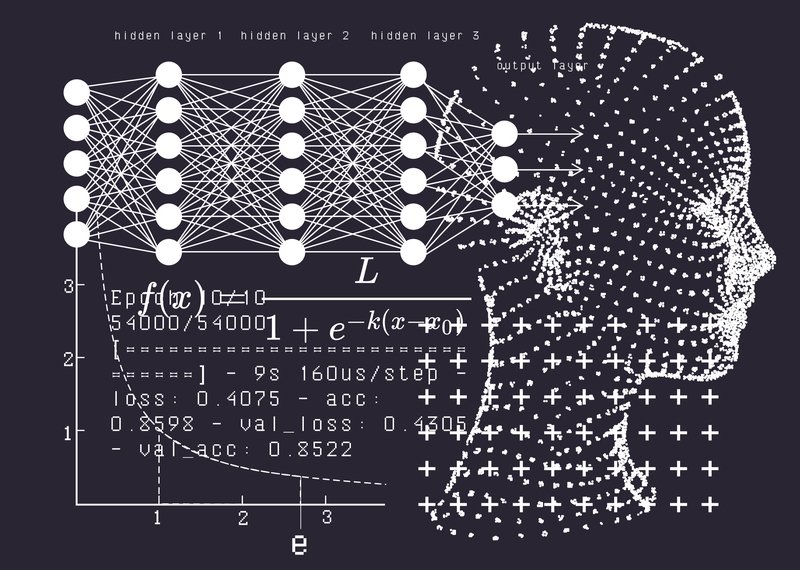What is Fuzzy Logic? All about Fuzzy Logic in AI applications

Unlike traditional logic, which has only two states: "true" or "false", Fuzzy Logic uses intermediate values to simulate the way humans think and make decisions. Invented by scientist Lotfi Zadeh in the 1960s, Fuzzy Logic has become a powerful tool in many applications from automatic control to home appliances. Let's learn about this technology with TipsMake in the article below.
What is Fuzzy Logic?
Fuzzy logic or fuzzy logic is a reasoning method in artificial intelligence (AI) and computer science, developed by Lotfi Zadeh in 1965. With fuzzy logic, humans can handle and make decisions in ambiguous or uncertain situations, unlike classical logic which has only two states "true" or "false". Fuzzy Logic uses intermediate values to simulate the way humans think and make decisions.
What is the architecture of Fuzzy Logic?
The Fuzzy Logic system consists of four main components:
Fuzzification Module
This module converts input data from numeric form to fuzzy sets. The input values are classified into different levels such as:
● LP (Positive Large)
● MP (Medium Positive)
● S (Small - Small)
● MN (Medium Negative)
● LN (Negative Large - Negative Large).
Knowledge Base
The knowledge base contains "IF-THEN" rules built on the knowledge of experts in a specific field. These rules form the foundation for the system's decision making process.
Inference Engine
The inference engine performs the process of simulating human reasoning by applying rules from the knowledge base to analyze fuzzy data. It helps the system make decisions based on the fuzzy input information.
Defuzzification Module
After the inference process is complete, the output is still in fuzzy form. This module is responsible for converting the fuzzy sets into clear and usable values, completing the system's decision making process.
Membership functions
In Fuzzy Logic, membership functions are used to quantify linguistic terms and represent fuzzy sets graphically. A membership function for a fuzzy set A is defined as μA:X→[0,1], , where each element of X is mapped to a value between 0 and 1.

What is Fuzzy Logic?
Why is Fuzzy Logic necessary and extremely important in AI?
Ability to handle uncertain information
Fuzzy Logic allows AI systems to operate effectively in environments with high volatility and uncertainty. Unlike traditional logic, where values can only be true or false (1 or 0), Fuzzy Logic allows values to range from 0 to 1, reflecting the degree to which an event is true. This allows computers to make decisions that are more similar to the way humans think and act.
Integrating human knowledge and experience
Fuzzy Logic has the ability to incorporate human knowledge and experience into the decision-making process. This is useful in automated control applications, where IF-THEN rules can be applied to simulate the way humans process information in real-world situations. This allows the system to learn and adapt over time, improving the accuracy and efficiency of decisions.
Advantages and disadvantages of applying Fuzzy Logic
Advantage:
● Handles all types of input information whether it is inaccurate, distorted or noisy.
● Building fuzzy logic is not too complicated.
● The mathematical concepts, set theory and reasoning of fuzzy logic are simple and easy to understand.
● Provides very effective solutions to complex problems in all areas of life because of their human-like reasoning and decision making.
● Algorithms do not require much data so they do not take up much memory.
Disadvantages:
● There is no systematic approach to solving a given problem through fuzzy logic so fuzzy logic is still very vague in practice.
● Proving the properties of fuzzy logic is quite difficult or impossible because there is no mathematical description of the exact approach.
● Accuracy is not high because fuzzy logic operates on both accurate and inaccurate data.
Practical Applications of Fuzzy Logic
Many fields and AI technologies are using fuzzy logic such as automotive, consumer electronics, medicine, software, chemicals and aerospace. In each application, fuzzy logic plays a different role:
● Car: Controls gear shifting smoothly and efficiently based on different driving conditions.
● Dishwasher: Determine the wash cycle and capacity needed, based on factors such as the number of dishes and the level of food residue on the dishes.
● Copier: Adjusts drum voltage based on factors such as humidity, image density, and temperature.
● Aerospace: Altitude control management for satellites and spacecraft based on environmental factors.
● Medicine: Diagnosis by computer, based on factors such as symptoms and medical history.
● Chemical distillation: Control of pH and temperature variables.
● Natural language processing: Determine semantic relationships between concepts represented by words and other linguistic variables.
● Air conditioners and heaters: Determine output based on factors such as current temperature and target temperature.
● Business rules engine: Streamline decision making based on predefined criteria.
Conclude
Fuzzy Logic has proven its important role in solving complex problems that traditional methods find difficult to handle. With the ability to simulate the way humans reason and make decisions based on uncertain information, Fuzzy Logic opens up many new opportunities for the development of AI technology.